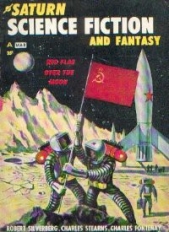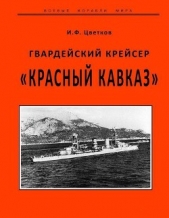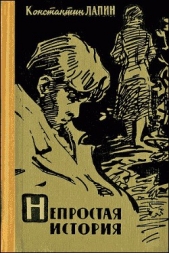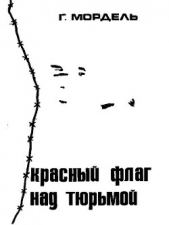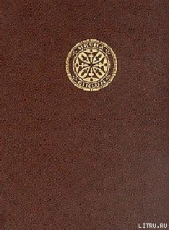Красный флаг: история коммунизма
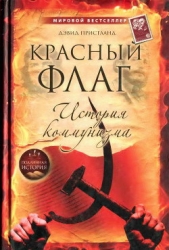
Красный флаг: история коммунизма читать книгу онлайн
Что думают на Западе о коммунизме и советском строе, что думали раньше? Кто был первым коммунистом?
Фундаментальный труд английского профессора Оксфордского университета Дэвида Пристланда «Красный флаг. История коммунизма» представляет собой неожиданный взгляд на «коммунистический проект» с позиции стороннего наблюдателя.
Оригинальные суждения западного автора, интересные факты, неожиданные параллели, взгляд на советское общество как на «цивилизацию инопланетян» — все это, без сомнения, вызовет неподдельный интерес у отечественного читателя.
Внимание! Книга может содержать контент только для совершеннолетних. Для несовершеннолетних чтение данного контента СТРОГО ЗАПРЕЩЕНО! Если в книге присутствует наличие пропаганды ЛГБТ и другого, запрещенного контента - просьба написать на почту [email protected] для удаления материала
951
D. Fortescue, “The Communist Party of South Africa and the African Class in the 1940s”, International Journal of African Historical Studies 24 (1991), pp. 481—512.
952
D. Everatt, “Alliance Politics of a Special Type: The Roots of the ANC/SACP Alliance, 1950—54” Journal of Southern African Studies 18 (1992), pp. 32—8.
953
A. Gresh, “The Free Officers and the Comrades: The Sudanese Communist Party and Nimeiri Face to Face, 1969—1971”, International Journal of Middle Eastern Studies 21 (1989), p. 395. См. также G. Warburg, Islam, Nationalism and Communism in a Traditional Society: The Case of Sudan (London, 1978).
954
R. Mortimer, Indonesian Communism under Sukarno. Ideology and Politics, 1959—1965 (Ithaca, 1974), pp. 366—7.
955
См., например, Stephen M. Streeter, “Nation Building in the Land of Eternal Counterinsurgency: Guatemala and the Contradictions of the Alliance for Progress”, Third World Quarterly 27 (2006), pp. 57—68.
956
M. Leffler, For the Soul of All Mankind. The United States, the Soviet Union and the Cold War (New York, 2007), p. 211. Об одержимом отношении к собственному унижению см. F. Logevall, Choosing War. The Lost Chance for Peace and the Escalation of War in Vietnam (Berkeley, 1999), p. 393.
957
Mortimer, Indonesian Communism, ch. 7.
958
До сих пор существуют разногласия по поводу роли коммунистов в этом перевороте. См. Н. Crouch, The Army and Politics in Indonesia, 2nd edn (Ithaca, 1988), ch.4; J. M. Van der Kroef, “Origins of the 1965 Coup in Indonesia: Probabilities and Alternatives”, Journal of Southeast Asian Studies 3 (1972), pp. 277—98; Mortimer, Indonesian Communism, pp. 413—41.
959
О причинах жестокости см. R. Cribb, “Unresolved Problems in the Indonesian Killings of 1965—1966”, Asian Survey 42,4 (2002), pp. 550—63. Статистику см. там же, сс. 558—9.
960
Ростоу Джонсону, 11 октября 1967 года, цит. по О. A. Westad, The Global Cold War: Third World Interventions and the Making of Our Times (Cambridge, 2005), p. 178.
961
К. Verdery, “National Ideology under Socialism: Identity and Cultural Politics in Ceausescu’s Romania (Berkeley, 1991)” pp. 174—6.
962
Об этой идеологической перемене см. Francois Fejto, A History of the People’s Democracies: Eastern Europe since Stalin, trans. D. Weissbort (London, 1971), pp. 76 ff.
963
R. Stone, Satellites and Commissars. Strategy and Conflict in the Politics of Soviet-Bloc Trade (Princeton, 1996), pp. 30—1.
964
Vladimir Tismaneanu, Stalinism for All Seasons: a Political History of Romanian Communism (Berkeley, 2003), ch. 1.
965
Цит. по М. Fischer, Nicolae Ceau§escu. A Study in Political Leadership (London, 1989), p. 85.
966
Fischer, Ceau§escu, p. 151, ch. 7.
967
A. Gabanyi, “Nicolae Ceauşescu and his Personality Cult”, in A. Gabanyi, The Ceauşescu Cult: Propaganda and Power Policy in Communist Romania (Bucharest, 2000), p. 18.
968
A. Janos, East Central Europe in the Modern World. The Politics of the Borderlands from pre. to post-Communism (Stanford, 2000), p. 302.
969
D. Deletant, Ceau§escu and the Securitate: Coercion and Dissent in Romania, 1965—1989 (London, 1995), pp. 154—6.
970
M. Vickers, The Albanians: A Modern History (London, 1995), p. 196.
971
P. Lendvai, Eagles in Cobwebs. Nationalism and Communism in the Balkans (London, 1969), p. 196.
972
A. Buzo, The Guerrilla Dynasty: Politics and Leadership in North Korea (London, 1999), p. 59.
973
Kim il Sung, On the Three Principles of National Unification (Pyongyang, 1972), p. 3.
974
Взгляд на корейское общество, подчеркивающий силу стратификации, см. в H.-L. Hunter, Kim Il-Song's North Korea (Westport, 1999), ch. 1. Взгляд, подчеркивающий толерантность и объединение, см. в В. Cumings, “The Last Hermit”, New Left Review 6 (2000).
975
О подробностях повседневной жизни см. в Hunter, Kim Il-Song, pp. 173—4.
976
A. Horvath and A. Szakolczai, The Dissolution of Communist Power: the Case of Hungary (London, 1992), pp. 62—3.
977
B. Denitch, The Legitimation of a Revolution: the Yugoslav Case (New Haven, 1976), p. 94.
978
Deletant, Ceauşescu and the Securitate, pp. 212—16.
979
L. Siegelbaum, “The Faustian Bargain of the Soviet Automobile”, in PEECS papers No. 24 (Trondheim, 2008), p. 1.
980
Цит. по J. Zatlin, “The Vehicle of Desire: The Trabant, the Wartburg, and the End of the GDR”, German History 15, 3 (1997), p. 358.
981
Там же, с. 359.
982
M. Burawoy and J. Lukacs, The Radiant Past: Ideology and Reality in Hungary’s Road to Capitalism (Chicago, 1992), pp. 125—6.
983
Основной аргумент венгерского экономиста Яноша Корнай, Economics of Shortage (Amsterdam, 1980).
984
S. Goodman, “Soviet Computing and Technology Transfer: An Overview”, World Politics 31 (1979), p. 567.
985
S. Kotkin, Armageddon Averted. The Soviet Collapse, 1970—2000 (Oxford, 2000), pp. 63—4.
986
N. Shmelev, in S. Cohen and K. Van den Heuvel, Voices of Glasnost Interviews with Gorbachev’s Reformers (New York, 1989), p. 149.
987
J. Kopstein, The Politics of Economic Decline in East Germany, 1945—1989 (Chapel Hill, 1997), p. 190.
988
П. Шелест. «Он умел вести аппаратные игры, а страну забросил…» / Ю. Аксютин. Брежнев: Материалы к биографии. М., 1991. С. 218.
989
Z. Mlynaf, Night Frost in Prague: the End of Humane Socialism, trans. P. Wilson (London, 1980), p. 86.
990
Kotkin, Armageddon Averted, p. 50.
991
Цит. по Kopstein, Politics, p. 43.
